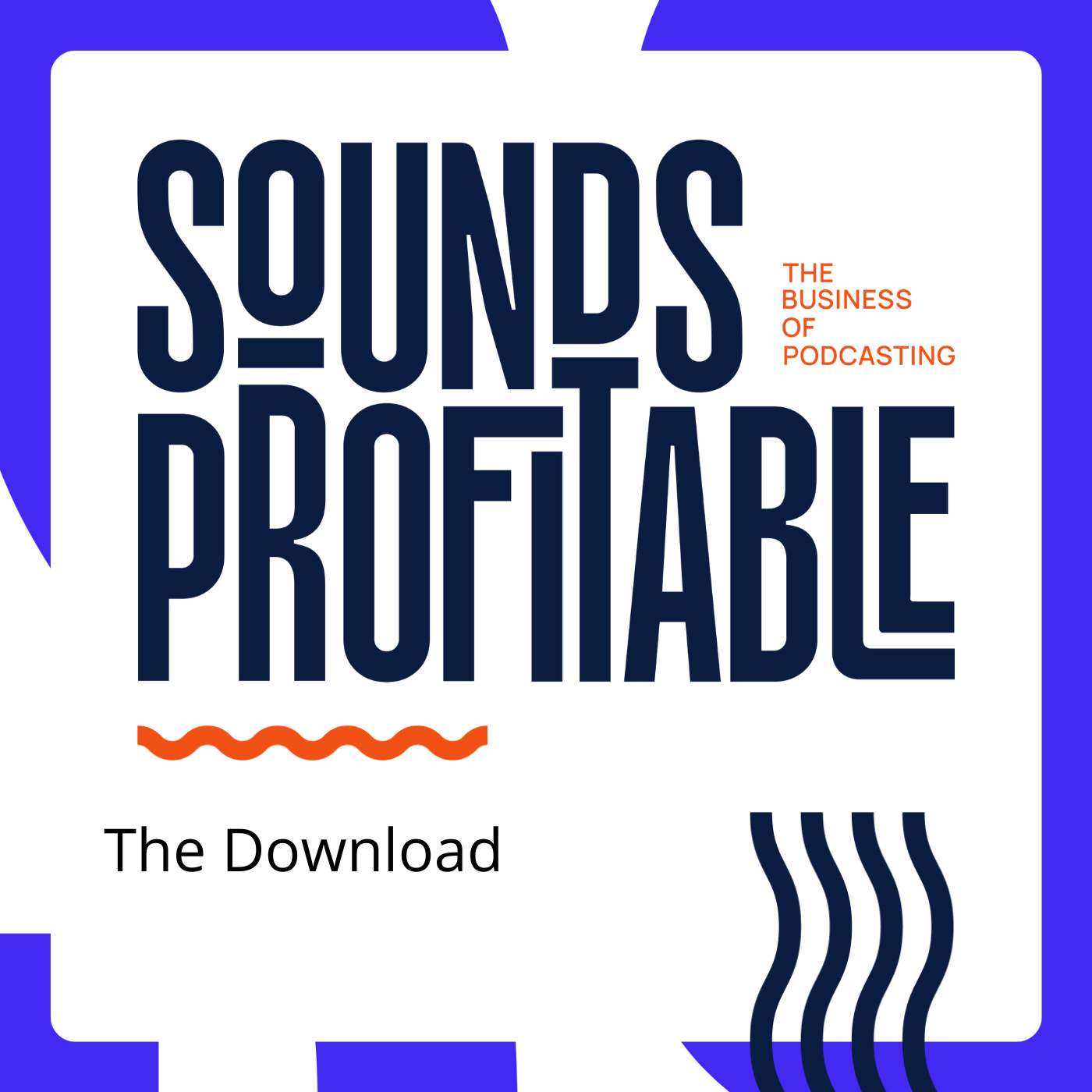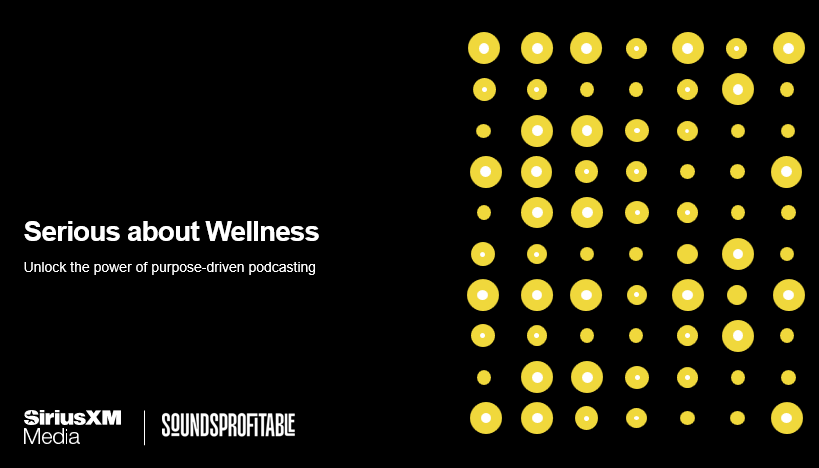Manuela: This is The Download from Sounds Profitable, the most important news from this week and why it matters to people in the business of podcasting. I’m Manuela Bedoya.
Shreya: And I’m Shreya Sharma.
Manuela: The Download is brought to you by Magellan AI. Track the trends in spend, ad load, podcasts on YouTube, and more with Magellan AI’s advertising benchmark report for Q4, available now. You can find a link in the description or visit Magellan dot AI.
Shreya: This week: Podcasters weigh in on ChatGPT, News Publishers struggle with verification firms, and why regulatory scrutiny of Big Tech is leading to renewed investment in adtech.
Let’s get started.
Podcasting opinions on AI tools, and their common uses
Manuela: This Tuesday Business Insider writer Marta Biino published a piece examining the current use-cases of AI-powered tools in the podcasting industry, as well as how audiences and podcasters feel about the ethics of implementing ‘thinking’ AI.
Biino begins by citing a recent Acast survey of 50 podcasters and 300 podcast listeners regarding their thoughts on the use of chatbots like ChatGPT. 36% of listeners agreed that, since ChatGPT is publicly available, it’s ethical to use in any way, compared to 84% of podcasters polled. 49% of listeners felt ChatGPT is ethical as long as it’s used exclusively for idea generation. From Biino’s article, referencing a conversation with podcast host Jordan Schwarzenberger:
“Schwarzenberger and other podcasters said the use of chatbots like ChatGPT should be limited to functions like summarizing key points from shows, social-media content creation, or to boost creativity — but not do the podcaster’s job.”
The consensus of podcasters Biino spoke to is that chat bots are more useful for generating social media copy or ideas than replacing the podcaster. The use of AI becomes more palatable when abstracted to specific tools that use machine learning, such as Descript’s ability to generate a transcript then edit sections of audio out as text is deleted by the user. Biino lists several similar tools that automate social media posting or transcription processes.
For all its usefulness, AI generated content still lacks the special sauce of a human touch to make it work. Fresh Air director of marketing and growth Richard Blake told Biino:
“There’s a real detail and context behind every podcast that is made, so I think the fact that they’re free from AI, they’re free from the robots, is one of their special things,” he said. “I won’t tell you that AI is replacing podcasts, or that we will be creating podcasts out of AI, because that negates what the magic of podcasting is.”
In other words: when built from ethically-sourced models, AI tools have great potential to build foundations on which true content can be built, but they can’t be expected to automatically generate everything. A hammer is an excellent, multifaceted tool. Still, one can’t expect a quality outcome if it’s the only tool implemented while painting a wall or fixing a leaky pipe.
News publishers lament the role of verification firms in the programmatic market
Shreya: Continuing our accidental theme of stories about using the right tool for the right job: this week Digiday’s Kayleigh Barber covering the reservations news publishers have with the current implementation of verification firms in programmatic advertising.
“Media buyers keep insisting that the role of third-party verification firms are critical when assessing everything from brand safety to viewability in the programmatic market. But news publishers feel powerless when their content is misclassified and subsequently demonetized by upwards of 30% compared to inventory deemed as “safe,” according to Luis Romero, svp and head of sales in North America for The Guardian.”
On top of this, now news publishers have to contend with a drop in programmatic CPM. According to Operative’s STAQ Benchmarking Data, the CPM for open marketplace programmatic in January hit $1.21, the lowest since May of 2020.
The problem becomes more nuanced as new solutions are implemented. Even with the replacement of keyword blocklists, methods like contextual targeting can make poor calls without human oversight..
One method to avoid these issues has been to lean into direct programmatic deals. The L.A. Times has been prioritizing private auction and guarantee deals. Guarantees have become the most attractive option, as private auctions can lead to both LA Times and buyers each running their own contextual targeting, leading to even less content being monetized
The Guardian has taken a path of education, preaching the good word of directly buying programmatic from news publishers and explaining the benefits that it imparts on them. From the article:
“The ongoing job for Deven Choi, manager of programmatic revenue at the LA Times who oversees the open programmatic marketplace, is to work with the SSPs directly to try and untether LA Times’ lifestyle, sports and entertainment sections from its hard news coverage, but that’s not a perfect solution.”
The continued evolution and implementation of programmatic is important, as well as education on the effects of it’s current state. In this cast, podcasting already has data to suggest podcast audiences are a bit heartier than other mediums expect theirs to be. As Sounds Profitable’s brand safety study Safe and Sound showed last year, podcast listeners don’t balk at advertisers supporting coverage of negative or controversial topics. If anything, they support those brands even moreso for sponsoring their favorite podcast. Contextual targeting is a good step, but it shouldn’t be an endpoint.
Why regulators’ scrutiny of Big Tech is rekindling buyers’ interest in ad tech
Manuela: 2022 was not a high water mark for adtech buyouts, but this Wednesday a new article from Ronan Shields for Digiday shows buyers are taking renewed interest in adtech amidst higher levels of scrutiny for Big Tech.
“According to Terence Kawaja, CEO of LUMA Partners, the ad tech sector is at the consolidation stage of its gestation. “Every industry goes through three phases of new company formation, maturity, and then rationalization and consolidation,” he told Digiday.”
And with complimentary timing to that consolidation phase, smaller ad tech companies wait in the winds while the biggest, Google, awaits an anti-trust case. Shields reports several anonymous sources predict the possibility that Google will succumb to pressure from the Justice Department and divest its ad tech assets. Were this to happen, the ad tech industry could see a surge similar to the uptick in long-distance telephone providers in the wake of AT&T’s antitrust breakup in 1982.
Bridgepoint director Jean-Baptiste Salvin says such a breakup would be good news for the open internet. From the article:
“We see breaches in the walled gardens … this is a complete part of my investment thesis. These guys [Big Tech] will still be dominant players, but they take 80% of budgets and only 30% of the eyeballs.”
Private equity sources tell Shields the sentiment that walled gardens get more investment than their share of audience implies is necessary has lead to renewed recent investments in ad tech. If the fabled Google breakup were to happen, podcasting ad tech could see a boon. The industry is already full of healthy examples currently, even without our own 21st century reenactment of the Ma Bell breakup.
Shreya: Finally, it’s time for our semi-regular roundup of articles we’re calling Quick Hits. These are articles that didn’t quite make the cut for today’s episode, but are still worth including in your weekend reading. This week:
The JAR Audio Pilot Competition for Emerging Women Podcasters is now accepting applications. The winning idea will be produced as a pilot episode with JAR audio collaborating with the creator. The deadline for submissions is May 1st.
Sessions from Veritonic’s Audio Intelligence Summit are now available on Veritonic’s website. For those who missed out, or are interested in reviewing what they saw in person, the seven sessions are now live, including the panel on attribution and brand lift that includes our own Bryan Barletta.
What Are the 3 S’s of Programmatic Podcast Advertising? By Mattia Verzella on AdMonsters. Spreaker’s Head of Business Development breaks down the rise of ad trading in podcasting, the challenges faced by both publishers and advertisers, and details how the three S’s can solve for them.
Manuela: And that was The Download, brought to you by Sounds Profitable! Today’s episode was built using Spooler and hosted on ART19. Find out more at Spooler.fm and Art19.com
I know we went through today’s stories fast, so be sure to check out the links to every article mentioned, right in your podcast listening app, or on SoundsProfitable.com/Podcast. And thank you for sticking with us as we bring you the top stories you might have missed from the past week. I’m Manuela Bedoya.
Shreya : And I’m Shreya Sharma. Our producers are Bryan Barletta, Gavin Gaddis, and Tom Webster. Special thanks to Art19 for hosting The Download. And thanks to you for joining us.
Robot?


 "
"


